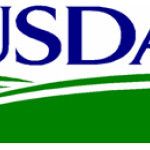- Branche: Government
- Number of terms: 41534
- Number of blossaries: 0
- Company Profile:
A phrase that was used in the congressional arena to characterize the production flexibility contract provisions of the FAIR Act of 1996.
Industry:Agriculture
An annual rate for water delivered from Bureau of Reclamation facilities, which includes project construction costs attributed to irrigation, as well as outstanding deficits on operation and maintenance charges, with interest on both accruing from October 12, 1982. The term is defined in Section 202 of the Reclamation Reform Act of 1982. The Bureau charges full-cost for water delivered to lands above the acreage limitation.
Industry:Agriculture
A vaporized pesticide used to control pests in soil, buildings and greenhouses, and chambers holding products such as fruits to be treated. Methyl bromide is an example.
Industry:Agriculture
A fund established by the FAIR Act of 1996 to augment existing resources for agricultural research and rural development through an annual transfer of funds from the U.S. Treasury to USDA. One-third of the fund is designated for competitive agricultural research grants, one-third for rural development projects, and one-third for either research or rural development, at the Secretary’s discretion. The FAIR Act authorized the U.S. Treasury to transfer $100 million annually to the Fund for 3 years. The Agricultural Research, Extension, and Education Reform Act of 1998 extended the authority for the program through FY2003 with an annual transfer to USDA of $60 million. However, the omnibus appropriations act for FY1999 (P.L. 105-277, October 21, 1998) prohibited the expenditure of the $60 million for Fund grants and projects.
Industry:Agriculture
The characteristic of interchangeability. Bulk commodities are generally described as fungible, whereas those with special characteristics may be marketed as identity preserved. Futures contracts for the same commodity and delivery month are fungible due to their standardized specifications for quality, quantity, delivery date and delivery locations.
Industry:Agriculture
Any pesticide used to control, deter, or destroy fungi, which are forms of plant life (including molds and yeasts) that lack chlorophyll and are unable to make their own food (such as the plant pathogen, powdery mildew).
Industry:Agriculture
Small, shallow channels guide water across the surface of a leveled field. Crops are typically grown on a ridge or raised bed between the furrows. This is the major irrigation system that is based on gravity.
Industry:Agriculture
An organization for high school students studying vocational agriculture.
Industry:Agriculture
A standardized agreement calling for deferred delivery of a commodity, or its equivalent, entered through organized futures exchanges. Most agricultural futures contracts call for physical delivery, but feeder cattle futures contracts call for cash settlement at contract maturity. In fact, contracts are usually liquidated before delivery. Traders are classified as hedgers or speculators. The FAIR Act of 1996 requires USDA to conduct research through pilot programs to determine if futures and options contracts can provide producers with reasonable protection from the financial risks of fluctuations in price, yield, and income inherent in the production and marketing of agricultural commodities.
Industry:Agriculture
